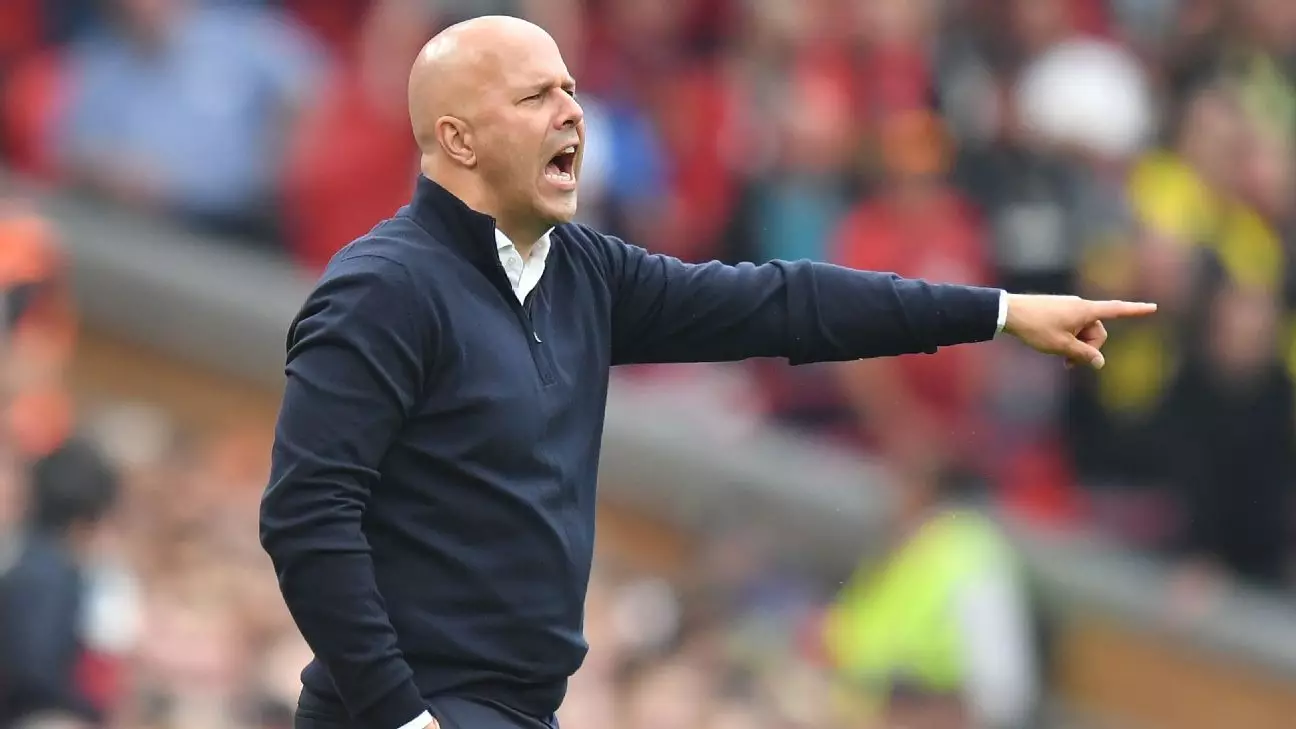In the world of football management, the appointment of a manager can mark the beginning of a transformative journey for a club, as evidenced by the recent successes of Bayer Leverkusen under Xabi Alonso. With a solid managerial debut culminating in an unbeaten Bundesliga season and a historic league title, Alonso has undeniably made his mark on the football landscape. His tactical acumen, coupled with a deep understanding of player dynamics, has elevated a team that was once languishing at the bottom of the league hierarchy. Now respected by peers and players alike, Alonso’s journey from celebrated midfielder to esteemed manager highlights the evolution of leadership in football.
His success can be attributed to his experiences under formidable coaches, which have shaped his philosophy. Slot’s comments about Alonso emphasize the necessity of learning from the best; after all, great players often make great managers. Alonso’s ability to relate to players stems from his own illustrious career, which included playing at the highest levels, where he faced intense pressure and expectation. By understanding the nuances of the game from multiple angles, he has positioned himself as a manager capable of harnessing the potential of his players, ultimately guiding them to greatness.
Across the English Channel, Liverpool continues to assert its dominance in the Premier League, marking its place as a significant contender in European football. Coach Jürgen Klopp has steered the team to the top of the league standings, showcasing resilience despite ongoing contractual uncertainties surrounding star players like Mohamed Salah, Virgil van Dijk, and Trent Alexander-Arnold. Such uncertainties could have destabilized a lesser squad, but Liverpool’s depth and collective spirit have allowed them to thrive.
The current season has been particularly notable given that these key players are facing contract issues, a scenario that could lead to potential exits. Salah’s cryptic Instagram post hinted at mixed emotions, drawing attention from fans and analysts alike. However, for Slot, the noise surrounding off-the-field drama is secondary to the influence of direct communication within the team. His perspective highlights the importance of maintaining an internal focus amid external speculation, a crucial element in managing player morale and performance levels.
At its core, effective management in football hinges on communication—a point underscored by Slot’s approach to dealing with player-related anxieties. Instead of engaging in speculation based on social media interpretations, Slot places an emphasis on conversations with players. This intention to maintain clarity reflects a profound understanding that a manager’s real insight comes from player interactions rather than external commentary. It is a philosophy that builds trust and facilitates open dialogue between the coaching staff and the players.
As Liverpool prepares to face Leverkusen in the Champions League, the contrasting styles of Slot and Alonso will come into focus. Slot’s admiration for Alonso as a “special manager” hints at a mutual respect that transcends rivalries, emphasizing the unique journey each coach has experienced within the sport.
In this high-stakes encounter, both teams will need to rely on their respective strengths—Leverkusen’s tactical ingenuity and Liverpool’s established tenacity. The clash symbolizes not just a competition for points but an opportunity to appreciate how evolving managerial philosophies can redefine the landscape of football. By analyzing the strengths and leadership dynamics of these two clubs, we gain deeper insights into the strategies that shape not only games but entire seasons.
The contrasting narratives of Alonso and Klopp encapsulate the broader story of modern football leadership. Their journeys underscore an essential truth: that managers, by virtue of their experiences and approaches, significantly influence how teams perform. As the Champions League clash approaches, it serves as a reminder of the intricate web that links player dynamics, managerial philosophies, and the unpredictable nature of competition.
Ultimately, the successes and tactical innovations put forth by managers like Xabi Alonso will inspire future generations of football leaders. As we watch them navigate the complexities of the game, it becomes clear that understanding both the game and the players is paramount in driving a club toward success. Thus, the impact of leadership—whether through direct management or effective communication—could very well be the key to unlocking titles and accolades in the years to come.

Leave a Reply